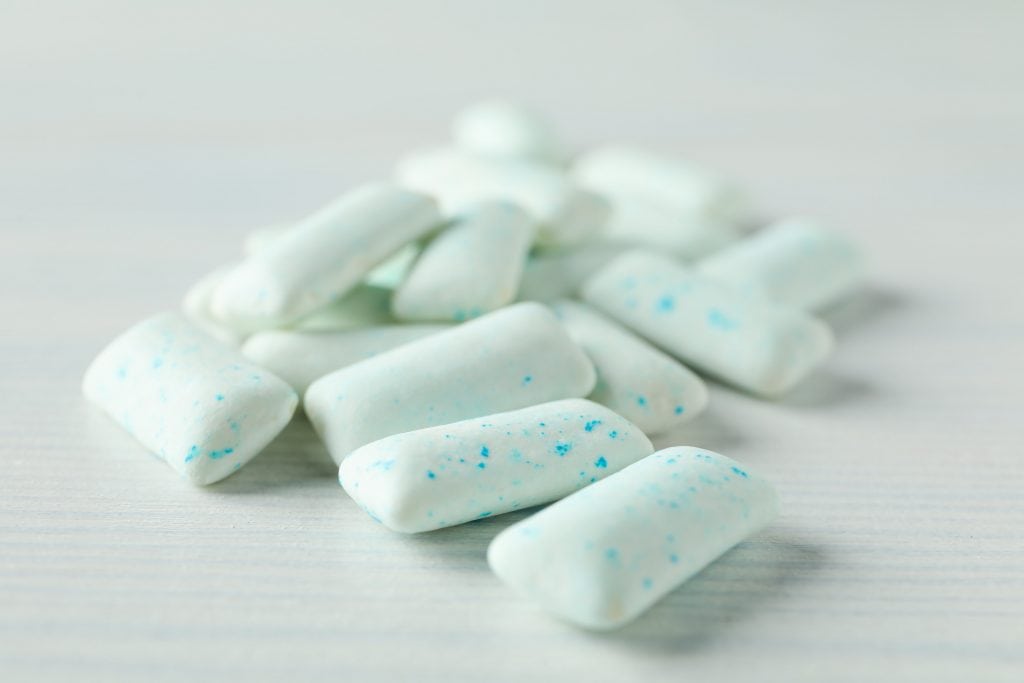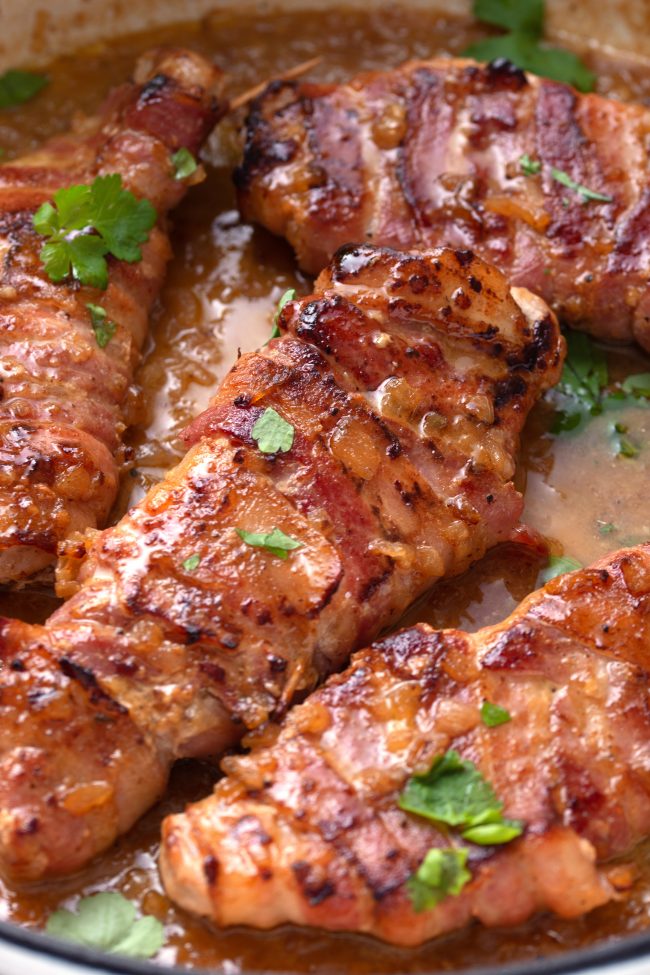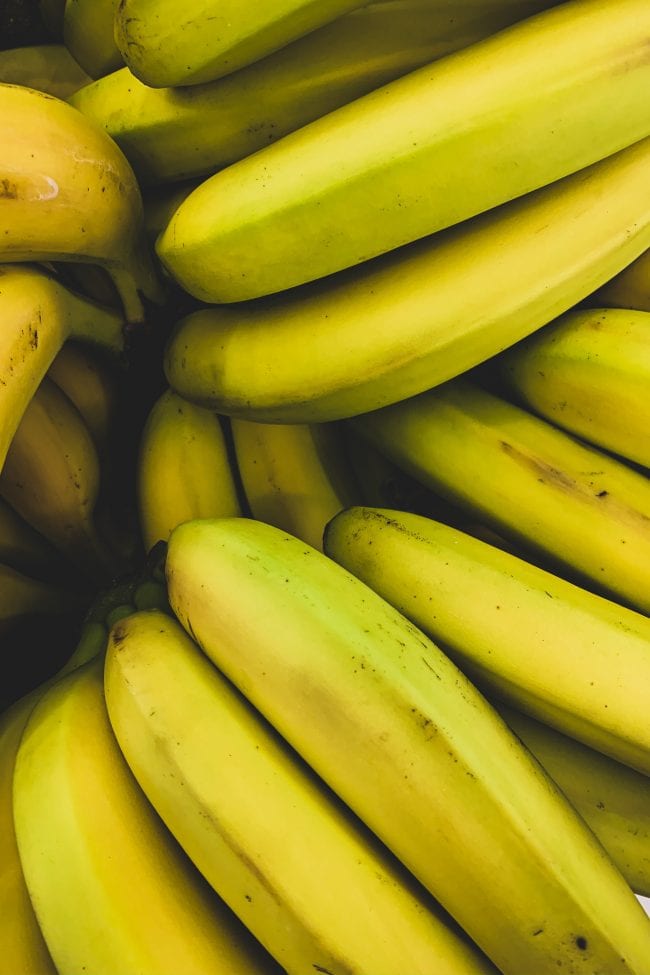Some research papers have shown that chewing gum can reduce hunger. This is why it’s popular amongst keto dieters doing intermittent fasting.

But does chewing gum break a fast?
In this guide, I’ll cover everything you need to know about can you chew gum while fasting. I’ll also look at factors to consider when shopping for keto-friendly gum.
Does Chewing Gum Break Your Fast
Wondering if you can have chewing gum on a fast? The answer isn’t a simple yes or no. It depends on two factors:
- What gum are you chewing?
- What type of fast are you doing?
What Gum Are You Chewing?
If you’re chewing regular gum sweetened with sugar, it’ll interrupt your fasting period. The sugar contributes to high blood sugar and insulin levels, inflammation and weight gain.
Even if you’re chewing gum with alternative sweeteners like aspartame or acesulfame K, we would still not recommend it.
Artificial sweeteners don’t spike insulin, but it’s still harmful to our health as it’s linked to fat gain, anxiety and irritable mood. So we suggest chewing gum containing natural sweeteners like stevia, monk fruit or erythritol.
These are healthier alternatives because they won’t harm your body. Although they might have some calories, the small amount doesn’t play a major role in your fast.
What Type Of Fast Are You Doing?
Another factor to consider is the type of fast you’re doing.
If you’re doing strict water fasts, you won’t be able to eat chewing gum because you want to avoid calories at all costs.
But if your fast is more flexible, chewing sugar-free gum is fine as the small amount of calories won’t negatively impact your fast.
Chewing Gum Nutritional Information
One stick of keto-friendly chewing gum contains:
- Six calories
- 0.3 grams of fat
- 1.9 grams of total carbs
- 0.5 grams of net carbs
- 1.4 grams of fiber
Sugar-free gum also has trace amounts of potassium, sodium and vitamin C. But the quantities are so small that unless you’re eating multiple packets, you won’t experience the benefits of these nutrients.

What Should I Look For When Buying Gum
If you’re thinking about chewing gum while fasting, always check the label for:
- Added sugars
- Artificial sweeteners
- Calories
- Additives and preservatives
Added Sugars
Added sugars are the number one warning sign to watch out for. However, companies are getting clever, so instead of labeling something as sugar, they’ll use names like:
- High-fructose corn syrup
- Malt syrup
- Coconut sugar
- Cane juice
- Dextrose
- Glucose
- Fructose
But don’t be fooled. They are all the same thing.
These ingredients can interfere with your fast as it makes losing weight harder. It also kicks you out of ketosis and spikes insulin. Even natural sweeteners like honey, dates and molasses counteract the benefits of a fast due to their high sugar content.
So only buy chewing gum with natural sweeteners like xylitol, erythritol, monk fruit and stevia.
Artificial Sweeteners
Watch out for artificial sweeteners because they can be worse than regular sugar. Artificial sweeteners might not trigger an insulin response but can cause weight gain and inflammation.
So always check if your pack of gum contains non-nutritive sweeteners such as:
- Aspartame
- Sucralose
- Acesulfame K
- Saccharin
- Maltodextrin
- Isomalt
As a rule of thumb, if gum has ingredients you can’t pronounce, it’ll probably interfere with your fast.
A perfect example of this is maltodextrin. This sugar substitute has a glycemic index (GI) of 110, far higher than table sugar’s score of 65.
So because something is keto and sugar-free, doesn’t mean it’s healthy. In many cases, it’s worse than consuming old-school table sugar.
Calories
In addition to checking the ingredient label, we’d suggest considering the caloric density of your gum.
A traditional stick of gum contains 11 calories. If you go with bubble gum, you’ll consume a whopping 30 calories. So opt for sugar-free chewing gum alternatives because you’ll only consume around six calories per stick.
If you’re eating two or three sticks per day, that’s 18 calories, which is unlikely to interfere with your fast.

Additives And Preservatives
The last ingredient to avoid is additives and preservatives.
These compounds increase the shelf life of gum but will wreak havoc on your body by triggering inflammation. Common types of additives and preservatives to watch for include:
- Sodium nitrite
- Guar gum
- Artificial colors
- Potassium sorbate
- Potassium nitrate
Instead, you want your gum to consist of healthy sweeteners like stevia extract, erythritol and inulin.
What Can You Eat And Drink While Fasting?
But except for chewing gum with sugar-free sweeteners, what else can you consume during a fasting period? Consider these options:
- Water
- Keto coffee
- Tea
Water
I’m a big fan of increasing my water intake when fasting because it keeps you full and hydrated. If I’m feeling hungry, I’ll drink two or three glasses of water, and after a few minutes, the hunger will disappear.
Keto Coffee
Keto coffee is pure fat, which is perfect when recovering from a cheat day or if you want to boost your fat intake.
Research shows that combined with butter and MCT oil, the caffeine in keto coffee boosts the number of ketones in your blood. It’s far more effective than those keto pills you’ll find at health shops.
One cup of bulletproof coffee contains 14 grams of fat. So if you’re drinking four cups of coffee daily, that’s 56 grams of fat!
To prepare bulletproof coffee, make your coffee like you normally would, but add a tablespoon of butter and MCT oil. If you don’t have MCT oil, regular coconut oil is fine.
If you aren’t a big fan of bitter coffee, you could even use stevia or xylitol for extra sweetness.

Tea
Bulletproof green tea is a handy alternative to keto coffee if you’re sensitive to caffeine. It has the same 14 grams of fat per cup, helping you get into ketosis. However, you won’t experience the quick boost in ketones that the caffeine provides.
Final Thoughts On Does Sugar-Free Gum Break A Fast
As long as you’re chewing gum containing sugar alcohols and natural sweeteners like xylitol, stevia and erythritol, it won’t impact your fast.
But avoid artificial sweeteners like maltodextrin and aspartame as they’re more harmful than table sugar.
Chewing gum is actually advisable if you want to optimize your dental health since it removes food particles. Research also shows that xylitol and erythritol protect your teeth against cavities, so it’s a healthy addition to intermittent fasting.
Written by
Matt Gaedke
Matt is a former college basketball player turned computer engineer who discovered his passion for health and nutrition after cutting sugar from his diet in 2016. That year he founded KetoConnect with Megha in order to share their ketogenic lifestyle through recipes, videos, and educational content. Matt is always seeking to grow and try new things, a passion he shares with his wife and two amazing sons.


Leave a Comment